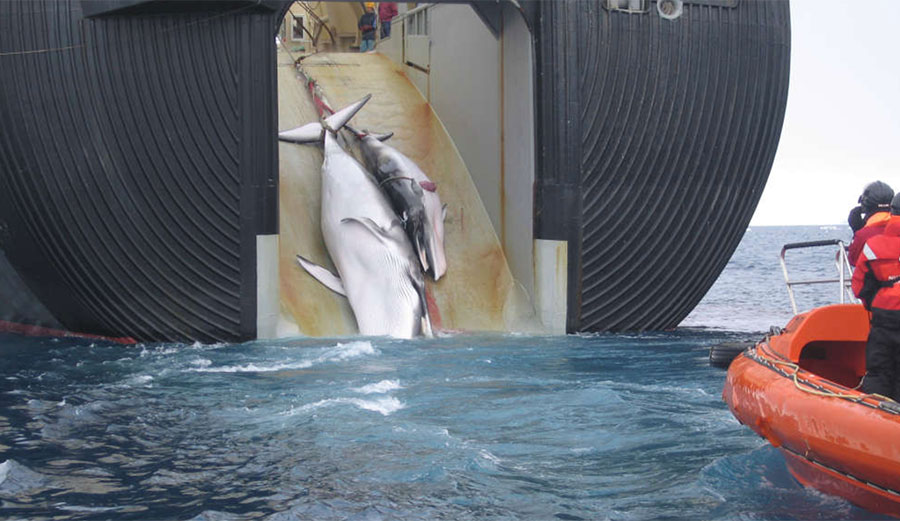
Minke whales are pulled onto a Japanese whaling vessel. Image: Australian Customs and Border Protection
Japan just officially declared that they’re getting back on the commercial whaling train next summer. In July of 2019, they will withdraw from the International Whaling Commission.
Although they are part of the IWC, reports of Japanese whaling ships killing whales are far from uncommon. In June of 2018, they announced they’d killed 333 whales for “research purposes,” which no one believed, for obvious reasons. Now, it seems, they’ve decided to stop pretending and get right back into it. Eighty nations signed onto the IWC’s ban on commercial whaling back in 1986. That hasn’t stopped a few countries like Russia, Iceland, Denmark, and Japan from opposing the ban and hunting whales under suspect circumstances.
Japan’s withdrawal from the IWC comes after they reported that whale populations have risen to levels where hunting them is sustainable. According to reports, they will only hunt in Japanese waters. Greenpeace, as one might expect, is livid.
“It’s clear that the government is trying to sneak in this announcement at the end of the year away from the spotlight of international media, but the world sees this for what it is,” said Sam Annesley, Executive Director of Greenpeace Japan. “The declaration today is out of step with the international community, let alone the protection needed to safeguard the future of our oceans and these majestic creatures.”
Japan has a long and complicated relationship with whaling—for centuries, eating whale meat has been a tradition in many of the coastal communities, but with the arrival of new technology, traditional hunting methods fell by the wayside and whale populations dwindled. “As a result of modern fleet technology, overfishing in both Japanese coastal waters and high seas areas has led to the depletion of many whale species,” Annesley continued. “Most whale populations have not yet been recovered, including larger whales such as blue whales, fin whales, and sei whales.”

